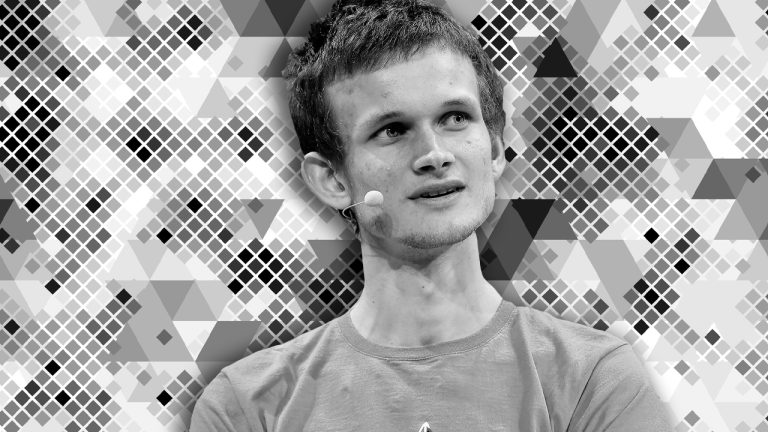
Vitalik Buterin thinks the Ethereum (ETH) user experience (UX) still needs to improve significantly, especially regarding transaction inclusion. The Ethereum creator says in a new blog that “simple and robust” user interfaces (UI) are preferable to “fancy and sleek ones.” “Good user experience is not about the average case, it is about the worst case. […]
The post Vitalik Buterin Says More Needs To Be Done To Improve Ethereum’s (ETH) User Experience appeared first on The Daily Hodl.

The long awaited account abstraction standard was believed to be many months off, but will be launched in a surprise announcement at WalletCon in Denver.
Smart accounts, enabled by the launch of the new ERC-4337 standard, are now available on Ethereum and are expected to help mainstream adoption by finally making crypto user friendly.
Ethereum Foundation security researcher Yoav Weiss will make the surprise announcement at WalletCon in Denver today that the core contracts for ERC-4337 — known by blockchain developers as “account abstraction” — have passed an audit by Open Zeppelin and will be made available on every Ethereum Virtual Machine (EVM) compatible network including Polygon, Optimism, Arbitrum, BNB Smart Chain, Avalanche and Gnosis Chain.
New users will no longer need to learn about complicated seed phrases or the technical process of setting up a wallet to onboard into the decentralized world of crypto, Weiss told Cointelegraph.
“The next billion users are not going to write 12 words on a piece of paper. Normal people don’t do that,” he said. “We need to give them better usability, they shouldn’t need to think about cryptographic keys.”
"EIP-4337 is going to take a year or whatever" - @sashaaldrick of @gelatonetwork
— John Rising (@johnrising_) February 25, 2023
You're in for a big surprise
Account abstraction also enables the unique cryptographic keys used for cryptocurrency to be stored on standard smartphone security modules, upgrading them to de facto hardware wallets. However the screen remains a security issue compared with traditional hardware wallets and gas costs could be prohibitive on mainnet initially — although other EVM chains and Layer 2s have low enough fees to make it viable.
It also enables the use of two-factor authentication; signing transactions on your phone using a fingerprint or face-scan; the setting of monthly spending limits on an account; and the use of session keys to play blockchain games without constantly having to approve transactions.
Users who lose their phone or device can use time-locked social recovery of their account via a group of trusted friends or even a commercial service. Weiss said:
“It gives you the same features a bank would without having to trust a bank.”
The standard has been in development for two years with the team funded via grants from the Ethereum Foundation. While similar functionality is available on smart contract wallets from Argent and Gnosis, these solutions require centralized components called relays to pay gas fees whereas ERC-4337 decentralizes the entire system.
Weiss was one of the lead authors of Etherum Improvement Proposal (EIP) 4337 alongside Ethereum co-founder Vitalik Buterin and five others. He said Buterin had first posted about the concept nine years ago "before Ethereum even launched, it has taken us this long to get here."
There have been numerous proposals to enable account abstraction prior to this but all required a difficult hard fork of Ethereum, and took a back seat to more pressing upgrades like the Merge. ERC-4337 is an alternate approach that makes use of decentralized infrastructure called “bundlers.”
Account abstraction is extremely powerful.
— John Rising (@johnrising_) February 25, 2023
Here are a few of the things you can do to make the most of it: pic.twitter.com/jWavGLzBhE
In very simple terms, the process works like this: a smart wallet signs a “user operation” which gets fired to a special mempool, which is basically just an organized queue of transactions (albeit a different queue than Ethereum’s normal mempool).
Bundlers are like miners or validators, taking user operations from the mempool and delivering the desired result back to the wallet. The bundlers also pay for the gas (transaction fee) required and are compensated by the user’s contract account or by a third party known as a “paymaster.” This could be a decentralized application (DApp) or it could be a wallet provider.
The first production grade bundler to be deployed on mainnet is from wallet and infrastructure provider Stackup, but more will be available soon. “It’s permissionless; anyone can run a bundler,” says Weiss. “It’s not censorable.”
Smart accounts, or account abstraction, is shaping up as a key theme for crypto in 2023. The technology has already been incorporated natively into zk-Rollup layer 2 solutions from StarkWare and zkSync and Visa designed an automated crypto bill payment system that makes use of it.
Related: Visa dreams up plans to let you auto-pay bills from your crypto wallet
John Rising, the co-founder of Stackup, tweeted this week that an added advantage of account abstraction is that projects can use plain and easily understood language to onboard new users rather than arcane technical terms.
“Because the contract handles the esoteric blockchain stuff, you don’t have to use words like ‘gas’ or ‘nonce’ to accurately describe what’s happening. This is a huge win for crypto adoption and security.”

"Good user experience is not about the average case, it is about the worst case," wrote the Ethereum co-founder.
In a new blog post published on Feb. 28, Ethereum (ETH) co-founder Vitalik Buterin documented the continued need to improve the namesake network to better facilitate ETH as a means of payment. In one instance, Buterin shared how he tried to pay for tea for himself and friends at a coffee shop in Argentina in 2021, but had to pay 0.01 ETH (around $40 at the time) as that was the minimum deposit for the owner's exchange account. "I did not mind the 3x overpayment and treated it as a tip," the co-founder wrote.
In another instance, Buterin explained how how he tried to pay for tea at another location in 2022, but two separate transactions failed due to requiring "extra gas to process the transfer" and a UI glitch in his mobile wallet. Furthermore, Buterin also raised the issue of unpredictable transaction times, writing:
"Many times, there has been a surprisingly long time delay between my transaction getting accepted on-chain, and the service acknowledging the transaction, even as "unconfirmed." Some of those times, I definitely got worried that there was some glitch with the payment system on their side."
As told by Buterin, outliers nevertheless remain on the Ethereum network despite recent improvements. "If you send a transaction at the same time as when many others are sending transactions and the base fee is spiking up, you risk the base fee going too high and your transaction not getting accepted," he wrote. "Even worse, wallet UIs suck at showing this. There are no big red flashing alerts, and very little clear indication of what you're supposed to do to solve this problem." Buterin added that even experts can be confused at how to speed up transactions in such cases.
"A UI that is clean and sleek, but does some weird and unexplainable thing 0.723% of the time that causes big problems, is worse than a UI that exposes more gritty details to the user but at least makes it easier to understand what's going on and fix any problem that does arise."
Among other issues, Buterin raised the problem of the internet being "not 100% reliable," and the need for possible offline proofs that customers indeed transfered their transaction data directly to the merchant. Another issue raised was "losing a small amount of BTC and ETH," due to secret-sharing-based off-chain social recovery methods for wallets, which Buterin deemed as fragile. According to YCharts, Ethereum transaction fees have fallen to an average of $0.656 at the time of publication, which is much lower than the average of $20 witnessed during the peak of the crypto bull market in 2021.
"Along with the all-important issue of high transaction fees due to scaling not yet being fully solved, user experience is a key reason why many Ethereum users, especially in the Global South, often opt for centralized solutions instead of on-chain decentralized alternatives that keep power in the hands of the user and their friends and family or local community."


The Ethereum co-founder has sent around $227,000 in ETH to two Turkish earthquake relief organizations.
Ethereum co-founder Vitalik Buterin has now made at least two substantial contributions to help the victims of last week’s devastating earthquake in Turkey and Syria.
The Turkey-Syria 7.8 magnitude earthquake struck on Feb. 6. Its death toll has now risen to 33,000 — one of the nation’s worst in decades.
Over the week, the Ethereum co-founder has been one of many actively donating Ethereum to support relief efforts in Turkey. His latest donation on Feb. 12 was for 50 ETH, or approximately $77,000, to Anka Relief as reported by blockchain security firm PeckShield.
Anka thanked the Ethereum co-founder for his donation and said that crypto donations had been flowing since the first day.
“Since day 1 of the disaster, we witnessed donations piling in the wallets of a handful of major NGOs. Great that they have attracted and will be attracting more funds,” said the organization.
We want to thank @VitalikButerin for donating 50 ETH ~$75k to Anka Relief, a crypto aid fund & community to support Türkiye after the recent earthquakes. https://t.co/kGwXSGWL8J
— Anka Relief (@AnkaRelief) February 12, 2023
Dive into the thread below to better understand our mission and ops
https://t.co/92CkxevI5e
Anka provided a list of crypto wallets than can be used for donations. The Web3 relief support organization has also spearheaded the Ukraine DAO project to raise crypto donations to support efforts in the besieged country.
The latest donation adds to another 99 ETH that Vitalik sent in support of earthquake victims. On Feb. 11 the vitalik.eth address sent around $150,000 worth of ETH to Ahbap, a non-governmental and nonprofit organization dedicated to relief efforts in Turkey.
Ahbap has also provided several crypto addresses for various tokens it can accept as donations.
To date, it claims to have received $4.3 million in crypto donations with stablecoins being the most popular tokens sent. According to Etherscan, the Ahbap wallet contains 409 ETH worth $622,000 at the time of writing.
Late last week, London’s Financial Times reported that crypto donations had been pouring in from across the globe. More than $10 million in crypto had been sent by companies with Binance alone donating $5 million in support of Turkish relief efforts.
Binance also announced $100 in BNB airdrops to those in the hardest-hit areas last week.
Related: The Web3 community responds to Turkish–Syrian earthquake tragedy
On Feb. 7, just a day after the devastating quake, Cointelegraph reported how the Web3 community was coming together to arrange crypto donations for NGOs and support.
It is not the first time crypto has been used for earthquake relief donations. In 2015, Bitcoin donations were sent to relief organizations following the massive quake in Nepal.
 Ethereum co-founder Vitalik Buterin published a research post that suggests using stealth addresses to enhance privacy-preserving transfers. Buterin detailed that stealth addresses can be implemented fairly quickly today on Ethereum and would significantly boost user privacy on the blockchain network. Buterin Suggests Stealth Addresses as a Solution to the Privacy Challenges in Ethereum Ecosystem Three […]
Ethereum co-founder Vitalik Buterin published a research post that suggests using stealth addresses to enhance privacy-preserving transfers. Buterin detailed that stealth addresses can be implemented fairly quickly today on Ethereum and would significantly boost user privacy on the blockchain network. Buterin Suggests Stealth Addresses as a Solution to the Privacy Challenges in Ethereum Ecosystem Three […]
Ethereum (ETH) creator Vitalik Buterin says that the leading smart contract platform faces a serious obstacle, but that a relatively simple solution could help immensely. In a post on his blog, Buterin says that privacy is one of the largest remaining challenges that Ethereum faces today. “By default, anything that goes onto a public blockchain […]
The post Vitalik Buterin Names One of Ethereum’s ‘Biggest Challenges,’ Says Improvement Can be Implemented Fairly Quickly appeared first on The Daily Hodl.

Vitalik Buterin identified distributed validator technology, or DVT, as a key component of Ethereum’s decentralization efforts.
Validator infrastructure developer ssv.network has launched a new ecosystem fund to support Ethereum proof-of-stake decentralization — a move that the company said would promote innovation around Ether (ETH) staking technologies.
The ecosystem fund, valued at $50 million, will support projects building applications using distributed validator technology, or DVT, the company announced on Jan. 17. The fund is solely dedicated to backing DVT use cases in support of Ethereum’s long-term decentralization efforts.
DVT is an open-source protocol that allows a validator’s responsibilities to be distributed across multiple nodes. The protocol was a key component of Ethereum co-founder Vitalik Buterin’s roadmap for Eth 2.0, as more DVT implementation means more decentralization.
SSV noted that several venture capital investors — including Digital Currency Group, HashKey, NGC, Everstake, GSR and SevenX — have promoted Ethereum’s use of DVT.
According to data, the blockchain industry seems to be on the path of stabilization. https://t.co/GJIDiZAFe0
— Cointelegraph (@Cointelegraph) January 12, 2023
SSV said it had already pledged $3 million toward developer grants and that $1.2 million has been allocated to over 20 proof-of-stake projects, including Blockscape, ANKR and Moonstake.
According to Alon Muroch, the core development lead at SSV, Ethereum is “currently secured by a small group of companies, which, when put together, control the entire blockchain.” He said the aim of DVT technology “is to distribute Ethereum’s security by offering quick and easy access to an open-source, public good which will completely change the way staking is operated today.”
Related: ETH staking on top exchanges contributes to Ethereum censorship: Data
Ethereum’s transition to proof-of-stake is a multi-phased process designed to enhance the network’s scalability, security and decentralization. The transition introduced ETH staking, where users actively participate in validating transactions. The minimum staking threshold for becoming a validator on Ethereum is 32 ETH.
Did you know there are different types of consensus mechanisms in blockchain? Read about the pros and cons of proof-of-stake and proof-of-work: https://t.co/jqlPEENlRw
— Cointelegraph (@Cointelegraph) January 16, 2023
As of early December, it was reported that demand for liquid ETH staking was on the rise. Blockchain analytics firm Nansen referred to staked ETH as the “first yield-bearing instrument to reach significant scale in DeFi."

A dog-themed crypto built on the smart contract platform Solana (SOL) is surging despite the SOL ecosystem’s recent struggles. Bonk (BONK), a new Dogecoin (DOGE) and Shiba Inu (SHIB) rival, has seen significant gains since its debut on December 29, 2022. The meme asset went from a weekly low of $0.00000008889 to a high of […]
The post Solana (SOL)-Based Dogecoin Rival Surges 4,838% in Wild Crypto Breakout appeared first on The Daily Hodl.

Traders are piling into BONK, boosting its price by triple-digits in the last 24 hours and possibly hinting at a trend reversal in Solana price.
Bonk, a meme token modeled after Shiba Inu (SHIB) that launched on Dec. 25, is skyrocketing and some traders believe the token’s trading volume is potentially driving Solana’s (SOL) price up. Over the past 48 hours, SOL price has gained 34%, and in the past 24 hours, Bonk has climbed 117%, according to data from CoinMarketCap. While the wider crypto market remains suppressed, traders are hoping that Bonk could present new opportunities during the downturn.
According to the project’s website, Bonk is the first dog token on the Solana blockchain. Initially, 50% of the token supply was airdropped to Solana users with a mission to remove toxic Alameda-styled token economics. The airdrop resulted in more than $20 million in trading volume according to the Solana decentralized exchange Orca.
Liquidity providers (LPs) stand to benefit from interacting with Bonk, and on Jan. 4, LPs are earning over 999% APR, which is much higher than the popular SOL/USD Coin (USDC) pairing.

While high yields do not always stay high, the current rates show large market demand for Bonk. In addition to the increase in demand, Bonk also burned 1 billion of supply on Jan. 3.
WE BURNED 1 BILLION BONK TOTAL TODAY pic.twitter.com/XDHP2YzXzu
— degen poet (@degenpoet) January 4, 2023
Blockchains like Solana benefit from increased usage. After the FTX collapse, Solana saw multiple projects leaving the ecosystem. On Jan. 4, Solana saw an 18.6% increase in 24-hour fees and a 15.8% increase in 24-hour daily active users.

In addition to fees and daily active user increases, SOL price rallied above $14 on Jan. 4 for the first time since Dec. 14. Some crypto market participants are attributing Bonk’s growth to Solana’s price action.
Solana is up 33% in two days as newly launched dog coin BONK gains community hype pic.twitter.com/XusvGHg24X
— Joe Weisenthal (@TheStalwart) January 3, 2023
While Bonk is merely a meme token, the increasing demand is a positive sign for the Solana blockchain. This is a sign that Vitalik Buterin may get his wish that Solana gets a “chance to thrive.”
The views, thoughts and opinions expressed here are the authors’ alone and do not necessarily reflect or represent the views and opinions of Cointelegraph.